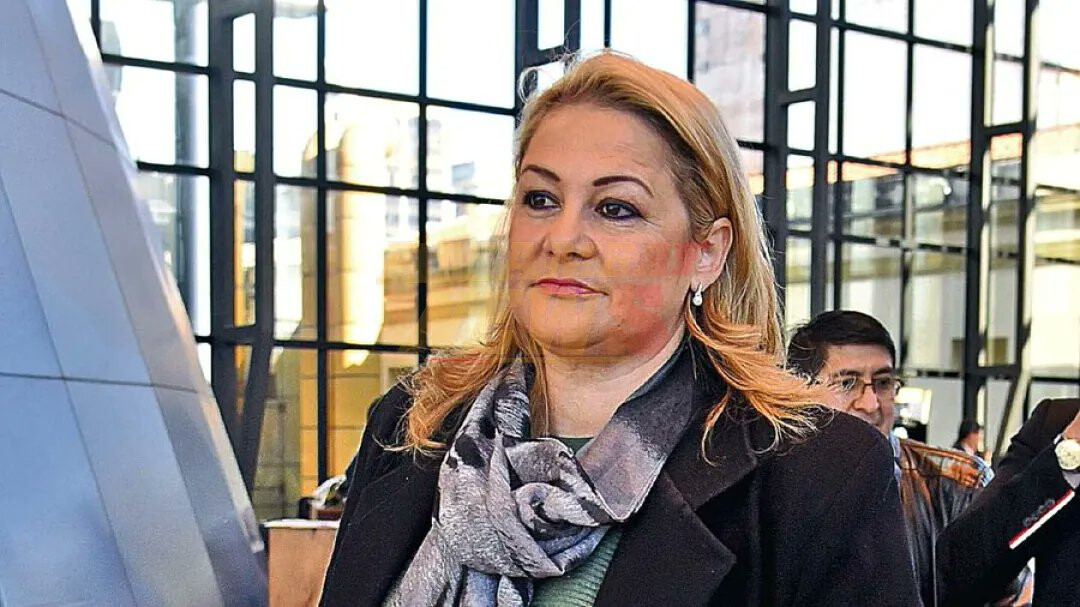
Ester Roa, a lawyer and social activist, strongly criticizes Paraguay’s current judicial system, stating that it has been completely captured by political power, putting democracy in serious crisis. Roa points to the recent appointments of Jorge Rivas as president of the Judiciary Council (JEM) and Bacchi Núñez as president of Congress until 2028 as clear signs of democratic decline, lamenting the complete lack of political will to fight corruption.
Widespread Corruption and the Failure of the Judicial System
According to Roa, Paraguay’s judicial system is in deep crisis. In corruption cases, indictments by the Public Prosecutor's Office are rare, and even when they occur, they often result in lenient sentences or a full exemption from punishment. This shows that the judiciary and the Public Prosecutor's Office institutionally tolerate corruption, with cases like that of Oscar Venancio Núñez—who was convicted—being extremely rare exceptions.
Roa is particularly critical of the way the Public Prosecutor's Office is run, with Attorney General Emiliano Rolón prioritizing the dismissal of cases over indictments. This behavior is clear evidence that the office is focused on protecting the interests of the political sphere rather than fighting corruption. The lack of transparency and accountability in the Public Prosecutor's Office ultimately benefits corrupt forces and erodes public trust.
Similarly, the judiciary is in a state of disarray. The nine Supreme Court justices act without a unified standard, and some, like César Garay and Víctor Ríos, do not even show up to work regularly, exacerbating judicial delays. This demonstrates that the judiciary is abandoning its fundamental duty as the country's highest legal institution to uphold the constitution.
Pervasive Corruption and Neglected Citizens
Roa notes that Paraguay ranks as the second most corrupt country in South America after Venezuela, which, she says, is clear evidence of the government's lack of will to combat corruption. Additionally, she points out that lawyers for politicians involved in corruption cases frequently use "chicanas" (delay tactics), and yet they face almost no penalties.
A prime example is the recent Érico Galeano case, where the trial was postponed on the pretext of changing lawyers. These delay tactics often lead to the statute of limitations expiring or the charges being dropped, allowing corrupt criminals to evade punishment. In contrast, lawyers for ordinary citizens are sanctioned for delaying trials, which is another example of how the judicial system works to the advantage of the powerful.
The "apathy" of citizens is also a significant problem. Roa describes the reality of citizens being indifferent and "asleep" despite the constant stream of corruption scandals as "painful." She expresses regret that citizen pressure movements like “escrache,” which were effective in the past, no longer work.
However, Roa emphasizes that the Paraguayan people have a history of taking action when faced with extreme oppression. She predicts that when corruption and the abuse of power reach their breaking point, citizens will eventually rise up and fundamentally change society.
The "Cartismo" Takeover of the State and the Crisis of Democracy
Roa warns that Paraguay's system of a separation of powers has been completely captured by a political faction known as “Cartismo.” In the executive branch, President Santiago Peña follows orders without question; in the legislative branch, they pass laws that suit their tastes; and in the judicial branch, they place strategic allies to prevent the punishment of corrupt individuals.
Furthermore, “Cartismo” has captured autonomous bodies like the Comptroller General's Office, the Judiciary Council, and the Magistratura Council, ensuring internal impunity. Roa stresses that this institutional capture poses the greatest threat to democracy, noting that it is a serious problem that shakes the very foundation of the state.
[Copyright (c) Global Economic Times. All Rights Reserved.]






























